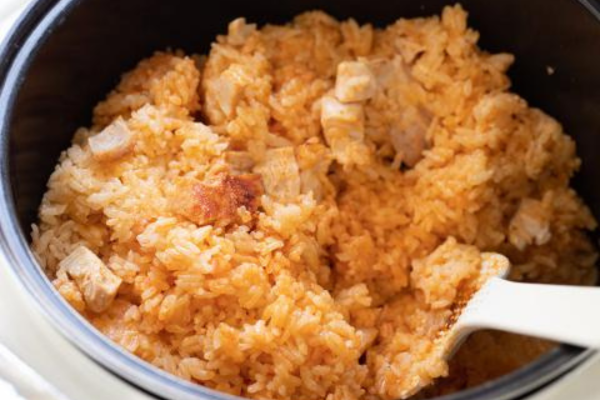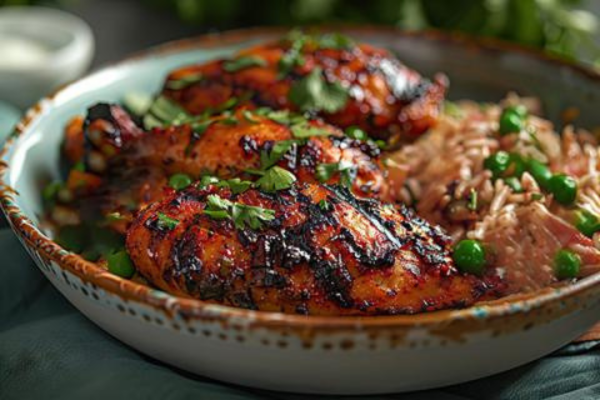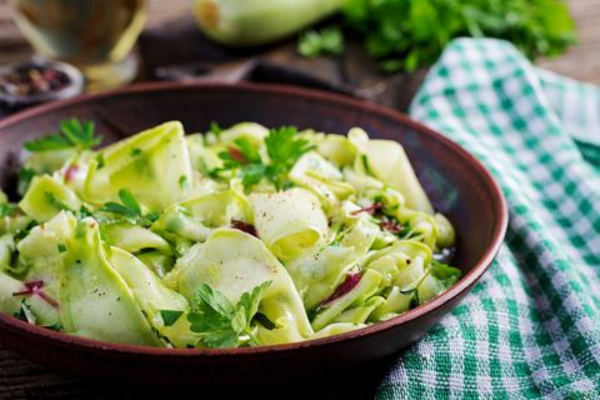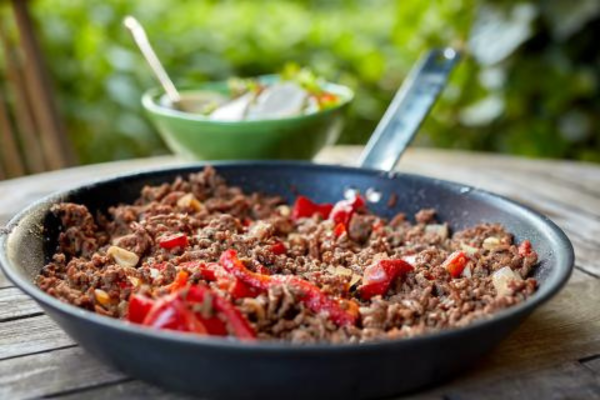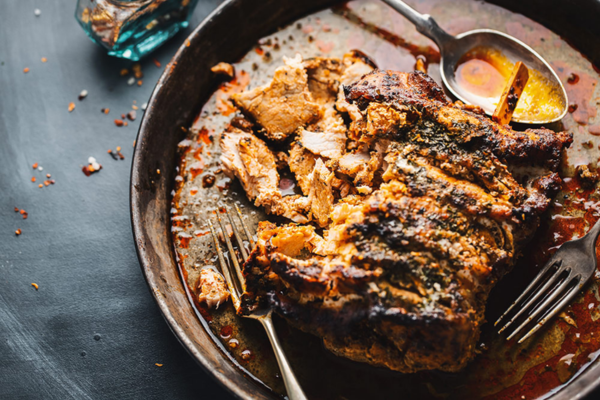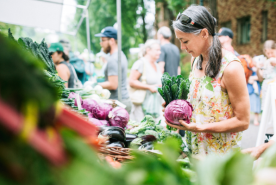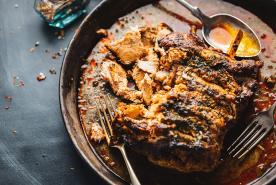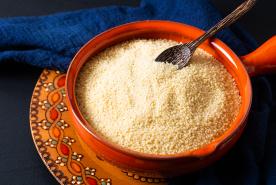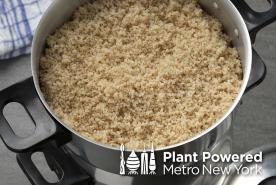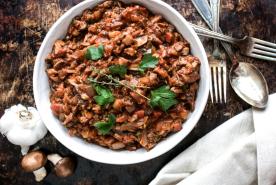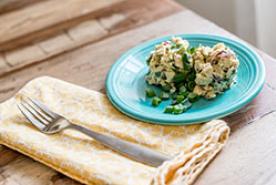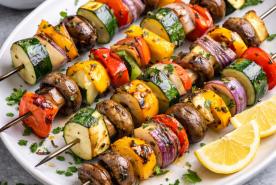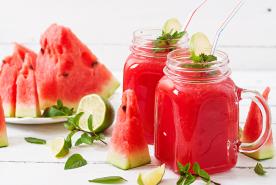Last updated: November 05, 2025
Medically reviewed by: NKF Patient Education Team
Learn how to enjoy traditional Caribbean foods while protecting kidney health with balanced, kidney-friendly meals.
Table of Contents
- About Caribbean and Nutrition
- Maintaining a Healthy Weight with Kidney-Friendly Eating
- Diabetes and Kidney Disease in the Caribbean Community
- How Food Choices Affect My Kidney Health
- Key Nutrients in the Caribbean Kidney Diet
- Protein
- Sodium
- Potassium
- Phosphorus
- Fluids
- Cultural Food Swaps for Kidney-Friendly Meals
- Caribbean Kidney Plate
- Planning for Caribbean Celebrations
- Questions to Ask Your Kidney Dietitian
- Caribbean Recipes
- Additional Resources
About Caribbean and Nutrition
Food is an important part of Caribbean traditions, family life, and celebrations. The Caribbean diet often includes a variety of fresh fruits, vegetables, grains, and flavorful herbs and spices that make meals enjoyable and meaningful.
When living with chronic kidney disease (CKD), you can still enjoy many of your favorite foods. Some traditional ingredients or cooking methods may need small adjustments, such as using less salt, choosing leaner protein sources, or managing portions of higher potassium foods.
A kidney dietitian can help you build a meal plan that honors your Caribbean heritage while protecting your kidney health. The goal is to adapt, not replace, traditional meals so they remain both healthy and culturally familiar.
Maintaining a Healthy Weight with Kidney-Friendly Eating
It can be hard to get enough calories if you are limiting some foods. Calories are like fuel; they provide your body with the energy you need to live. They help you stay at a healthy body weight, give you energy to do your daily tasks, and help your body use the protein in food to build muscles and tissues. Eating the right number of calories is important.
Diabetes and Kidney Disease in the Caribbean Community
Following a lower carbohydrate meal plan and picking kidney-friendly foods can be challenging. Foods that are good for one meal plan may not be good for another. Plan for three balanced meals, include a variety of vegetables, fruits, whole grains, and lean proteins, and bring snacks to dialysis if needed. Monitor your blood glucose as directed by your doctor and consult your kidney dietitian or diabetes educator.
Key Nutrients in the Caribbean Kidney Diet
Every culture has unique foods and flavors, and many of them can fit into a kidney-friendly eating plan. Understanding how key nutrients like fluid, phosphorus, potassium, protein, and sodium affect your body can help you make small adjustments while keeping the traditional foods you love.
Caribbean Kidney Diet Quick Guide
| Nutrient | Limit | Choose Instead | Why It Matters | CKD Stage |
|---|---|---|---|---|
| Sodium | Ackee & saltfish, jerk chicken, adobo seasoning | Fresh fish with lime and herbs, home-cooked meats, salt-free spice blends | High sodium raises blood pressure and fluid retention | All Stages (stricter for 3–5) |
| Potassium | Plantains, breadfruit, avocado, coconut | Pineapple, chayote, jicama, watermelon | Too much potassium can cause irregular heartbeat | Limit in Stage 4–5 |
| Phosphorus | Cheese flan, pelau, fried dumplings, soda | Rice with pigeon peas, fresh vegetables, non-dairy milk substitutes | High phosphorus weakens bones and affects the heart | Limit in Stage 4–5 |
| Protein | Large meat portions, processed meats | Fish, beans, lentils, tofu (adjust portion by stage) | Builds muscle; too much in early CKD can strain kidneys | Stage 1–4: moderate; Stage 5: higher intake |
| Fluids | Sodas, coconut milk, large portions of juice | Water, sorrel tea, sugar-free flavored ice or fruit pops | Too much fluid causes swelling; too little causes dehydration | Limit in Stage 5 (dialysis) |
Protein
Protein helps build muscles, repair tissue, and fight infection. It is found in many favorite Caribbean foods such as fish, chicken, beans, and peas. The amount and type of protein you need depends on your stage of kidney disease. Eating smaller portions or choosing more plant-based proteins can help protect your kidneys in the early stages, while those on dialysis often need more protein to stay strong and healthy.
Your hand as a guide to help with serving size. The palm of your hand is about three ounces, and the size of your thumb is about one ounce.
Types of Protein
| Types | Examples | Tips |
|---|---|---|
| Animal Protein | Chicken, fish, eggs, lean pork or goat, shellfish such as shrimp or crab | Choose grilled, baked, or stewed instead of fried. Trim visible fat and remove skin. |
| Plant Protein | Beans, lentils, pigeon peas, tofu, nuts (if allowed) | nuts (if allowed) Include small portions with meals for added fiber and nutrients. Rinse canned beans to lower sodium. |
Balance Your Protein Intake
| Lower Protein Intake | Increase Protein Intake |
|---|---|
| Use vegetable and grains as your main dish and meats or beans as your side dish | Increase portion sizes of protein foods |
| Make kabobs with smaller pieces of meat and more vegetables or fruit | Eat more eggs throughout the day |
| Make casseroles with smaller amounts of meat and increase vegetables, rice, pasta, or polenta | If needed and recommended by your dietitian, use an allowed protein supplement |
Sodium
Sodium is a mineral that helps your nerves and muscles work properly, but too much can cause high blood pressure and fluid buildup around the heart and lungs. Many traditional Caribbean foods are naturally flavorful, but some ingredients, like salted meats and packaged seasonings, add extra sodium. Lowering your sodium intake helps reduce thirst, control blood pressure, and protect your kidneys.
How Much Sodium Should I Have?
Most people should aim for less than 2,300 mg of sodium per day, which equals about one teaspoon of salt.
If you are on dialysis, eating too much sodium can make you thirstier and cause fluid discomfort during treatment.
Sources of Sodium
| Type of Food | Examples | Healthier Caribbean Choices |
|---|---|---|
| Salted or Cured Meats | Ackee and saltfish, corned beef, chorizo sausage | Use fresh fish, chicken, or goat; rinse salted foods before cooking |
| Packaged or Fried Foods | Beef patties, fried dumplings, canned soups | Bake or grill foods; make soups and stews at home without salt |
| Seasonings and Sauces | Bouillon cubes, adobo, blended spice mixes | Season with onions, garlic, sofrito (without tomato), lime, or hot peppers |
Tips to Control Sodium Intake
| Small Changes That Help | Why It Matters |
|---|---|
| Cook more meals at home with fresh herbs and spices | Reduces added salt and gives you more control over flavor |
| Choose unsalted snacks such as nuts, plantain chips, or crackers | Prevents extra sodium from processed foods |
| Ask for “no added salt” when dining out | Restaurant foods are often high in sodium |
| Avoid salt substitutes made with potassium | These can raise blood potassium levels if you need to restrict potassium |
Do not use salt substitutes made with potassium if you need to restrict potassium.
Potassium
Potassium is a mineral that helps your muscles and nerves work properly. When your kidneys are not removing potassium well, levels can build up in the blood and cause irregular heartbeat or heart attack.
Many Caribbean fruits and vegetables are naturally high in potassium, so it’s important to watch portions and cooking methods. Managing potassium helps keep your heart healthy and your body in balance.
How Much Potassium Should I Have?
Your doctor or dietitian may recommend about 2,000 mg of potassium per day if you need to limit it. Some people taking diuretics or other medicines may need more potassium. Always follow your kidney dietitian’s advice for your specific needs.
Common Sources of Potassium
| Type of Food | Examples | Healthier Caribbean Choices |
|---|---|---|
| High-Potassium Fruits and Vegetables | Plantains, breadfruit, avocado, yam, callaloo, coconut, soursop | Pineapple, watermelon, tangerine, golden apple, chayote, jicama, okra |
| Root Vegetables | Dasheen, taro, yucca, cassava | Boil, soak, and drain before cooking to reduce potassium |
| Hidden Sources | Salt substitutes made with potassium chloride, canned fruit liquids | Avoid potassium additives and drain canned foods before using |
Tips to Control Potassium Intake
| Small Changes That Help | Why It Matters |
|---|---|
| Watch serving sizes, even of lower-potassium foods | Large portions can turn a low-potassium food into a high-potassium one |
| Leach or boil starchy vegetables before cooking | Removes extra potassium while keeping flavor |
| Avoid drinking cooking liquids or canned juices | These contain potassium that has leached out of the food |
| Choose fresh, frozen, or boiled foods instead of fried or canned | Helps maintain healthy potassium levels |
Phosphorus
Phosphorus helps keep bones and teeth strong. When kidneys are not working well, phosphorus can build up in your blood and pull calcium from your bones, making them weak. It’s found in meats, dairy, colas, and processed foods. Choose fresh foods instead of packaged ones and check for “phos” ingredients on labels.
How Much Phosphorus Should I Have?
Your doctor or kidney dietitian will determine how much phosphorus you need each day. Many people with CKD should limit phosphorus to about 800–1,000 mg per day, depending on lab results. Your dietitian may also recommend phosphate binder medicines to help lower phosphorus levels after meals.
Common Sources of Phosphorus
| Type of Food | Examples | Healthier Caribbean Choices |
|---|---|---|
| Traditional Dishes | Cheese flan, pelau, conch fritters, fried dumplings, coconut rice pudding | Make smaller portions or use non-dairy milk substitutes |
| Processed or Packaged Foods | Sodas, canned meats, fast foods | Choose fresh meats and fish; drink water or herbal teas instead of soda |
| Hidden Additives | Foods with ingredients like phosphate, phosphoric acid, tricalcium phosphate | Check labels and choose products without “phos” ingredients |
Tips to Control Phosphorus Intake
| Small Changes That Help | Why It Matters |
|---|---|
| Choose fresh or home-cooked meals instead of packaged foods | Reduces exposure to phosphate additives |
| Replace regular milk with non-dairy substitutes (soy, almond, or oat milk) | Keeps flavor but lowers phosphorus |
| Take phosphate binders as prescribed with meals or snacks | Helps remove extra phosphorus from food |
| Balance portions of protein-rich foods | Most protein foods also contain phosphorus, so portion control is key |
Fluids
Fluids include drinks and foods that are liquid at room temperature, such as soups, juices, gelatin, and ice cream. The amount of fluid your body needs depends on your stage of kidney disease and type of treatment. Too much fluid can cause swelling, high blood pressure, and shortness of breath, while too little can lead to dehydration and low blood pressure. Finding the right balance helps you feel your best and keeps your heart and kidneys working well.
How Much Fluid Should I Have?
Your doctor or kidney dietitian will tell you how much fluid is right for you.
- People with early-stage CKD may not need to limit fluids.
- People on dialysis often need to limit fluids to prevent discomfort during treatment.
Common Sources of Fluid
| Type of Drink or Food | Examples | Kidney-Friendly Tips |
|---|---|---|
| Traditional Caribbean Beverages | Ginger beer, sorrel, mauby, coconut water, malt drinks | Choose small portions or sugar-free versions. Coconut water is high in potassium—ask your dietitian before drinking. |
| Hidden Fluid Sources | Soups, sauces, gelatin, ice cream | Count these toward your total daily fluids. |
| Better Choices | Water, herbal tea, flavored ice, frozen fruit pieces | Sip slowly and enjoy throughout the day to manage thirst. |
Tips to Control Fluid Intake
| Small Changes That Help | Why It Matters |
|---|---|
| Measure and track your fluid intake | Keeping you from drinking more than your daily goal |
| Limit salt and high-sodium foods | Reduces thirst |
| Use sugar-free mints or frozen fruit to ease thirst | Keeps mouth moist without adding fluids |
| Drink from smaller cups or bottles | Helps manage portions without feeling deprived |
| Traditional Dish | Concern | Kidney-Friendly Swap | Why It Works |
|---|---|---|---|
| Ackee & Saltfish | High in sodium | Fresh codfish with less salt or use fresh white fish | Lowers sodium while keeping traditional flavor |
| Pelau | High in phosphorus and sodium | Use brown rice and skinless chicken, limit added salt | Adds fiber, reduces phosphorus |
| Fried Plantains | High potassium and fat | Bake or air-fry smaller portions | Reduces oil and potassium intake |
| Coconut Rice Pudding | High phosphorus | Use coconut-flavored milk substitute | Keeps flavor, lowers phosphorus |
| Jerk Chicken | High sodium | Use no-salt jerk seasoning and herbs | Maintains taste with less sodium |
| Meal | Example Foods | Kidney Diet Tip |
|---|---|---|
| Breakfast | Cornmeal porridge (small portion), pineapple, tea with less sugar | Use low-fat milk substitute and limit added sugar |
| Lunch | Rice and pigeon peas with grilled fish, chayote salad | Rinse canned peas, use herbs instead of salt |
| Dinner | Callaloo with tofu, roasted vegetables, rice | Boil and drain callaloo to reduce potassium |
| Snack | Low-sodium crackers with hummus or fruit | Avoid salted nuts or fried snacks |
Planning for Caribbean Celebrations
Traditional foods are an important part of Caribbean celebrations. You don’t have to give them up, just make small changes. Here are a few ways to enjoy traditional dishes while protecting your kidneys:
- Use fresh herbs and citrus instead of salt-heavy seasonings.
- Choose smaller portions of higher-potassium foods like plantains.
- Balance heavy meals with lighter sides such as steamed vegetables or fruit.
- Drink water or herbal teas instead of sugary or alcoholic beverages.
Questions to Ask Your Kidney Dietitian
- How can I adjust traditional Caribbean recipes to make them more kidney-friendly?
- Which fruits and vegetables are safest for me to eat based on my potassium levels?
- How much protein should I include at each meal for my stage of kidney disease?
- What are some lower-sodium seasonings or spice blends that still bring Caribbean flavor?
- How can I plan meals and fluids around family gatherings or celebrations without harming my kidneys?


